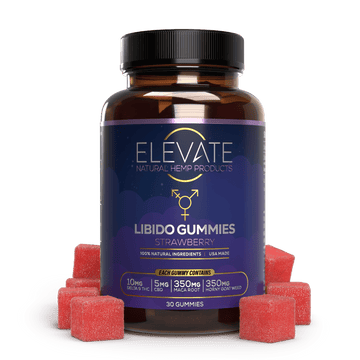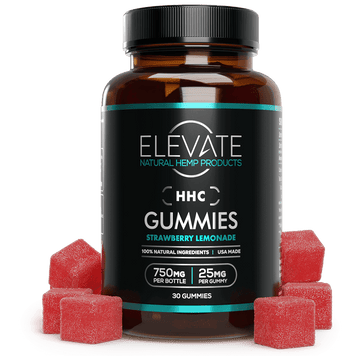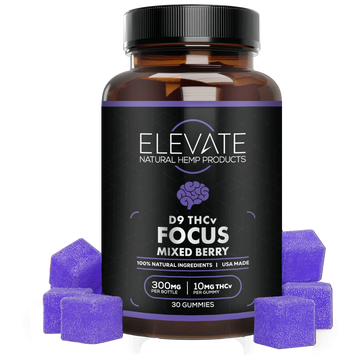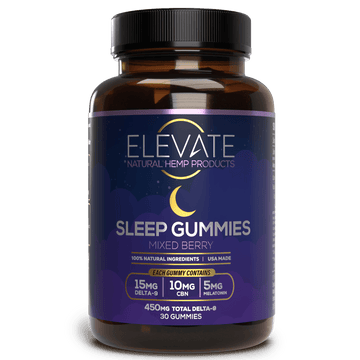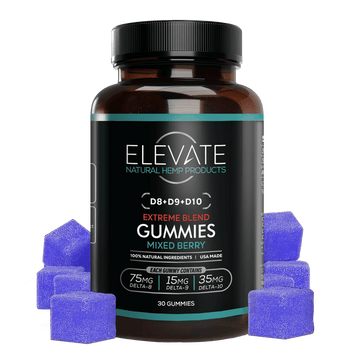Is Delta 8 Legal in Texas? What You Must Know

Following the legal status of Delta 8 in the Lone Star State can feel like watching a tennis match. One moment, state officials move to ban it; the next, a court order puts everything on hold. This back-and-forth leaves many people wondering, is delta 8 legal in texas for good? While the final answer is still being decided in the courts, the current situation allows for the sale and purchase of these products. To help you make sense of it all, we’ve created this guide to explain the temporary injunction, the role of the federal Farm Bill, and what it all means for you right now.
Key Takeaways
- Confirm the Current Legal Status: Delta 8's legality in Texas is based on a temporary court order and could change. Before you buy, do a quick check on the current state laws to make sure you're making a fully informed and compliant purchase.
- Always Check for a Lab Report (COA): The single best way to verify a product's safety and quality is by reviewing its Certificate of Analysis. This third-party report proves the product is free from contaminants and contains a legal amount of Delta 9 THC.
- Start Low, Go Slow, and Understand the Risks: To ensure a safe experience, begin with a small dose and wait to see how you feel. Keep in mind that Delta 8 will likely cause you to fail a drug test, and you should never use it before driving.
What Exactly Is Delta 8 THC?
If you’re exploring the world of cannabis, you’ve likely heard about Delta 8 THC. So, what is it? Think of it as a close relative to Delta 9 THC, the compound most people associate with the classic marijuana high. Delta 8 THC, or delta-8-tetrahydrocannabinol, is a cannabinoid, which is a naturally occurring chemical found in both hemp and cannabis plants. While it exists naturally, it’s only present in very small amounts, making it something of a rare find in its raw form.
Because of its unique properties, Delta 8 has become a popular choice for people looking for a specific kind of experience. It interacts with your body's endocannabinoid system, much like other cannabinoids, which can influence things like mood, appetite, and sleep. Many users describe the feeling as clear-headed and relaxing, without the intensity that can sometimes come with Delta 9. It’s often seen as a middle ground—offering a gentle lift and sense of well-being without being overwhelming. If you're curious about trying it for yourself, our Delta 8 gummies are a popular and precisely dosed option to start with. Understanding what Delta 8 is and how it works is the first step in figuring out if it’s the right fit for your wellness routine.
How Delta 8 Compares to Delta 9
The main difference between Delta 8 and Delta 9 THC comes down to potency and effect. Chemically, they are almost identical, but a tiny difference in their molecular structure changes how they interact with your body. Delta 9 THC is known for its powerful psychoactive effects. Delta 8, on the other hand, offers a much milder experience. People often report feeling relaxed, clear-headed, and functional, with less of the anxiety or paranoia that some experience with Delta 9. It’s often described as a more manageable and gentle buzz. For comparison, you can explore traditional Delta 9 gummies to understand the difference.
Where Does Delta 8 Come From?
Since Delta 8 THC is only found in trace amounts in the hemp plant, it’s not efficient to extract it directly. Instead, most Delta 8 on the market is created through a conversion process. It starts with cannabidiol (CBD), which is abundant in legally grown hemp. Through a safe chemical process called isomerization, the molecular structure of CBD is rearranged to create Delta 8 THC. This is why Delta 8’s legal status is often tied to the 2018 Farm Bill, which legalized hemp and its derivatives. Because it originates from hemp-derived products like CBD gummies, it falls into a different legal category than marijuana.
What Are the Effects of Delta 8?
The effects of Delta 8 can vary from person to person, but many users seek it out for its calming and mood-lifting properties. It’s often used to unwind after a long day or to find a gentle sense of euphoria. However, it’s important to be aware of potential side effects. Some people have reported feeling drowsy, disoriented, or anxious, especially with higher doses. As with any cannabinoid, the key is to start low and go slow. Understanding how your body responds will help you find the right amount for your needs, whether you're looking for something to help with relaxation or exploring THC for sleep.
Is Delta 8 Legal in Texas?
So, what’s the deal with Delta 8 in the Lone Star State? It’s a question with a surprisingly complicated answer. The legal status of Delta 8 THC in Texas has been a rollercoaster, with state agencies, courts, and federal laws all playing a part. While it’s currently available for purchase, the situation is fluid. Understanding the key legal points can help you make informed decisions. Let's walk through the specifics so you know exactly where things stand.
A Look at Recent Court Rulings
The main reason for the confusion is an ongoing court case. Initially, Texas health officials tried to classify Delta 8 as an illegal controlled substance. However, a Travis County judge issued a temporary injunction, which essentially put that ban on hold while the lawsuit proceeds. The case has since moved up to the Texas Supreme Court, which is still reviewing the matter. Because of this legal challenge, there isn't an active ban on Delta 8 in Texas right now. You can find more details on the cannabis laws in Texas through the state's official law library.
The Role of the 2018 Farm Bill
To understand the legal argument for Delta 8, we have to look at the federal level. The 2018 Farm Bill was a landmark piece of legislation that federally legalized hemp and its derivatives. The bill defines legal hemp as a cannabis plant containing less than 0.3% Delta 9 THC by dry weight. Since Delta 8 is an isomer derived from hemp-derived CBD, it falls under this federal protection. This bill is the foundation for the legal sale of hemp products, including Delta 8 gummies, across the country, provided they meet that crucial THC threshold.
Federal Law vs. Texas State Law
This is where things get interesting. While federal law opened the door for products like Delta 8, states can still create their own, stricter rules. In Texas, the law aligns with the federal definition for now. As long as a Delta 8 product is derived from legally defined hemp and contains no more than 0.3% Delta 9 THC, it is not considered a controlled substance. This distinction is key. It separates legal hemp products from illegal marijuana. So, while the legal fight continues, the current Delta 8 products in Texas on the market are operating under this specific legal framework.
What the Temporary Injunction Means
Let's talk more about that court order. A temporary injunction is a legal tool used by courts to prevent a party from taking a specific action until a case can be fully heard. In this situation, it stopped the Texas Department of State Health Services (DSHS) from enforcing its rule that would have made Delta 8 illegal. This injunction doesn't mean the fight is over or that Delta 8 has been declared permanently legal. It simply preserves the status quo—keeping Delta 8 accessible to consumers—while the courts take the time to make a final decision on its classification under state law.
The Ongoing Legal Fight
The bottom line is that the legal status of Delta 8 in Texas is still up in the air. The temporary injunction provides protection for now, but the Texas Supreme Court could rule on the case at any time. A final ruling could either solidify Delta 8’s legality or lead to a ban. Because the situation is so uncertain, it’s incredibly important for consumers to stay informed about any new developments. Following reputable news sources and legal updates is the best way to keep track of the changes as they happen and understand how they might affect your access to products.
How to Buy Delta 8 in Texas
With Delta 8’s legal status confirmed for now, you can find products in smoke shops, CBD stores, and online. But not all products are created equal. The market is largely unregulated, so it’s up to you to be a smart shopper. Knowing what to look for is the best way to ensure you’re getting a safe, high-quality product that delivers the experience you want. From checking lab reports to understanding what a legitimate label looks like, a little knowledge goes a long way.
Here are the key things to keep in mind when you’re ready to buy Delta 8 in Texas.
Age and ID Requirements
First things first: you must be at least 21 years old to purchase Delta 8 products in Texas. Reputable retailers, both online and in-person, will verify your age. The Texas Alcoholic Beverage Commission (TABC) now requires stores to check IDs for the sale of these products, which is a positive step toward ensuring they stay out of the hands of minors. If a seller doesn't ask for your ID, consider it a red flag. This simple check is a basic sign of a responsible and legally compliant business.
Finding a Licensed Retailer
In Texas, any business that produces or sells consumable hemp products, including Delta 8, must be licensed by the Texas Department of State Health Services (DSHS). This licensing requirement helps create a baseline for safety and accountability in the market. Before buying, check if the retailer—whether it’s a local shop or an online store—is operating with the proper credentials. A trustworthy seller will be transparent about their licensing. You can often find this information on their website or by asking in-store. Choosing a licensed retailer is a critical step in avoiding unregulated and potentially unsafe products.
Checking for Quality and Lab Tests
This is non-negotiable. Always choose brands that provide third-party lab test results, often called a Certificate of Analysis (COA). A COA is your proof that the product has been tested for potency and purity. It verifies the amount of Delta 8 and, crucially, confirms that the Delta 9 THC level is at or below the legal 0.3% limit. It also screens for harmful contaminants like pesticides, heavy metals, and residual solvents. Reputable brands like Elevate make these lab reports easy to find for every product, usually through a QR code on the packaging or a dedicated page on their website.
Understanding Marketing Rules
Be wary of products that make bold or specific medical claims. The U.S. Food and Drug Administration (FDA) has issued warnings about companies using deceptive marketing practices for Delta 8. A responsible brand will focus on the quality of its ingredients and the potential for general wellness benefits, like relaxation or focus, rather than promising to cure or treat any health condition. If a product’s marketing sounds too good to be true, it probably is. These exaggerated claims are a major red flag and often indicate a company that prioritizes sales over consumer safety.
What to Look for on the Label
A product’s label tells you a lot about its quality and the company behind it. A proper label should clearly list the total cannabinoid content, the amount of Delta 8 THC per serving, a full list of ingredients, and an expiration date. It should also include a QR code that links directly to the product’s COA. Vague or missing information is a sign of a low-quality product. Because some products labeled as Delta 8 can contain impurities or inaccurate THC levels, carefully reading the label and cross-referencing it with the lab report is the best way to confirm you’re getting exactly what you paid for.
How to Use Delta 8 Safely
While many people enjoy Delta 8 for its relaxing and euphoric effects, it’s important to approach it with care, just like any other cannabis product. Understanding how to use it responsibly helps ensure you have a positive and safe experience. The key is to be informed about potential side effects, know what to look for in a quality product, and always start with a low dose to see how your body reacts. By following a few simple guidelines, you can feel more confident as you explore what Delta 8 has to offer.
Potential Side Effects
Like its more famous cousin, Delta 9 THC, Delta 8 can have side effects, especially if you take too much. These effects are usually temporary and mild, but it’s good to know what they are. Some people report feeling dizzy, anxious, or disoriented. Other reported reactions include an increased heart rate, memory loss, or an upset stomach. The best way to avoid these unwanted effects is to start with a very small dose—think half a gummy or a single puff—and wait to see how you feel before taking more. This gives you control over your experience and helps you find the right amount for your body.
Medical Risks and Interactions
If you have a pre-existing health condition or take prescription medication, it’s always a smart move to talk with your doctor before trying Delta 8. Because it interacts with your body’s endocannabinoid system, it could potentially interfere with certain medications or affect underlying health issues. While many people use Delta 8 to find relief from stress and anxiety, the FDA has noted that some unregulated products have caused adverse events. Being open with your healthcare provider ensures you can make an informed decision that’s right for your personal health situation.
What the FDA Recommends
The FDA has issued warnings about some Delta 8 products on the market, primarily due to a lack of regulation in the industry. Their main concern is with products that are made without proper safety testing, which can lead to unknown contaminants or inaccurate THC levels. This is why the FDA emphasizes the importance of buying from reputable sources that are transparent about their manufacturing processes. They advise consumers to be cautious and to check for lab reports to verify a product's purity and potency. This guidance highlights why choosing a trusted brand that prioritizes safety and quality is so crucial.
Will Delta 8 Affect a Drug Test?
Yes, it most likely will. Standard drug tests are designed to detect THC metabolites, but they typically can't tell the difference between Delta 8 and Delta 9 THC. This means that using Delta 8 could result in a positive test for marijuana. If you are subject to drug testing for your job or any other reason, it’s safest to avoid Delta 8 products altogether. Even though Delta 8 is federally legal under the Farm Bill, a positive drug test can still have serious consequences, so it’s better to be cautious.
Best Practices for Safe Consumption
The single most important step for safe consumption is choosing high-quality products from a brand you trust. Always look for products that have been tested by an independent, third-party lab. These tests result in a Certificate of Analysis (COA), which confirms the product’s potency and proves it’s free from harmful contaminants like pesticides or heavy metals. When you’re ready to try a product like our Delta 8 Gummies, start with a low dose and go slow. Give it time to take effect before considering more, and never use Delta 8 before driving or operating machinery.
How to Find Quality Delta 8 Products
With the rise of Delta 8, it feels like new products are popping up everywhere. While having options is great, it also means you have to be extra careful about what you’re buying. The market isn’t tightly regulated, so the quality can vary dramatically from one brand to the next. The good news is that you can learn to spot the high-quality products and avoid the rest. It just comes down to knowing what to look for.
Think of it like becoming a savvy shopper for your well-being. You don’t have to be a scientist to understand the basics of a good, safe product. By paying attention to a few key details—like where the hemp comes from, how it’s tested, and what’s on the label—you can feel confident in your choices. Let’s walk through the simple steps to ensure you’re only getting the best.
Spotting a Reputable Retailer
A trustworthy retailer is transparent, and the biggest sign of transparency is third-party lab testing. Reputable brands will always send their products to an independent lab to verify their purity and potency. These test results, called Certificates of Analysis (COAs), should be easy to find on the company’s website. If a brand doesn’t provide a COA or makes it difficult to locate, consider that a major red flag. Look for companies that are open about their processes, from where they source their hemp to how they create their final products. A brand that is proud of its quality will have nothing to hide.
How to Read a Lab Report (COA)
At first glance, a COA might look intimidating, but it’s pretty straightforward once you know what you’re looking for. First, check the cannabinoid profile. This section will show you the exact amount of Delta 8 THC in the product and confirm that the Delta 9 THC level is at or below the legal limit of 0.3%. Next, look for the section on contaminants. The report should show that the product has been tested for and passed on things like pesticides, heavy metals, and residual solvents. This is how you confirm that what you’re about to consume is clean and safe.
Verifying Product Quality
The best Delta 8 comes from natural, high-quality hemp. Always choose products from brands that specify their hemp is U.S.-grown, as this generally means it adheres to stricter agricultural standards. It’s also crucial to ensure the Delta 8 is derived from hemp, not created synthetically. Some manufacturers cut corners by using unsafe chemicals to create synthetic cannabinoids, which are not only potentially harmful but also fall outside federal legality. Sticking with naturally derived Delta 8 gummies and other products ensures you’re getting a safer and federally compliant experience.
Decoding the Product Label
A product label is more than just branding; it’s a window into the product's quality and the company's integrity. A clear, informative label should list the total amount of Delta 8 THC in the package and per serving. This helps you dose accurately and manage your experience. The label should also include a full list of ingredients, so you know exactly what you’re consuming besides the cannabinoids. Many reputable brands will also include a QR code on the packaging that links directly to the product’s COA, making it incredibly easy to verify its safety and potency on the spot.
Storing Your Products Correctly
Once you’ve found a quality product, you’ll want to store it properly to maintain its freshness and potency. Heat, light, and air are the enemies of cannabinoids, so keep your Delta 8 products in a cool, dark, and dry place. An airtight container stored in a cabinet or drawer is perfect. Proper storage ensures the product remains effective for as long as possible. And if you plan to travel, always check the laws of your destination. It’s a good idea to keep your products in their original packaging with the COA easily accessible, just in case you need to verify their contents and legality.
Know Your Rights and Responsibilities
Navigating the world of Delta 8 means being an informed consumer. Understanding your rights and responsibilities helps you enjoy your products with confidence and peace of mind. Since the laws can feel a bit murky, let’s clear up some of the most common questions about using Delta 8 in Texas.
Understanding Consumer Protection Laws
So, what’s the bottom line on Delta 8 in Texas? Right now, it’s legal to buy and own, with a couple of important conditions. The product must be derived from hemp and contain less than 0.3% Delta 9 THC by dry weight. This distinction is what separates legal hemp products from marijuana under both federal and state law. As a consumer, this means you have the right to purchase products like Delta 8 gummies as long as they meet this legal standard. Always buy from transparent brands that provide third-party lab results to confirm their products are compliant. This protects you and ensures you’re getting exactly what you paid for.
Can You Travel with Delta 8?
Thinking of taking your Delta 8 on a trip? It’s best to proceed with caution. While Delta 8 may be legal in Texas, its status varies widely from state to state. Before you pack your bags, you absolutely must check the laws of your destination and any states you’ll be passing through. If you decide to travel with your products, keep them in their original, sealed packaging. It’s also a great idea to have the Certificate of Analysis (COA) handy, either as a printout or a digital file. This lab report proves your product is a legal hemp derivative, which can help clear up any confusion if you’re questioned.
What Are the Possession Limits?
In Texas, you must be at least 21 years old to purchase any hemp-derived cannabinoid product, including Delta 8. Be prepared to show a valid ID when you buy from a reputable retailer. As for how much you can possess, Texas law doesn’t currently set a specific limit for legal hemp products. However, this assumes the products you have are, in fact, legal (i.e., under the 0.3% Delta 9 THC threshold). This is another reason why buying lab-tested products from a trusted source is so important. It ensures you stay on the right side of the law while enjoying your favorite items from our full collection.
Where Can You Use Delta 8?
Just because Delta 8 is legal to buy doesn’t mean you can use it anywhere you’d like. The legal situation is still being worked out in the courts, so it’s smart to be discreet and respectful. As a general rule, avoid using Delta 8 products in public spaces. Think of it like alcohol—you wouldn’t walk down the street with an open container. Definitely do not use Delta 8 while driving. It’s safest to enjoy your products in the comfort of your own home. Remember that property owners, landlords, and employers can set their own rules, so always be mindful of your surroundings and their policies on cannabis and hemp use.
How to Stay Up-to-Date on the Law
The legal landscape for Delta 8 is constantly changing, both in Texas and across the country. Being a responsible user means staying informed. Laws can be updated based on new court rulings or legislative sessions, so what’s true today might not be true tomorrow. To keep up, make it a habit to check for updates from reliable sources. Official Texas government websites and the Texas State Law Library are excellent resources for official information. You can also follow reputable cannabis news outlets and advocacy groups that track these changes closely. This helps you make smart, informed decisions and continue enjoying your products responsibly.
Related Articles
- Delta 8 Products in Texas: A Complete Legal Guide
- Is a Delta-10 Product Legal in Texas? 2025 Guide
- Are Delta 8 Gummies Legal? The Ultimate Guide
Frequently Asked Questions
If Delta 8 is milder than Delta 9, does that mean I can take more of it? Not necessarily. While Delta 8 is generally less potent, everyone’s body chemistry is different. A dose that feels mild to one person might be strong for another. The best approach is always to start with a very small amount, like half a gummy, especially if you're new to it. Give yourself plenty of time to see how you feel before even thinking about taking more. This helps you find your personal sweet spot without overdoing it.
With the legal situation in Texas being so uncertain, is it risky to buy Delta 8 right now? Currently, a court injunction allows for the sale and purchase of Delta 8 in Texas, so you are not breaking the law by buying it from a licensed retailer. The risk lies in the potential for the law to change. Because the Texas Supreme Court has yet to make a final ruling, the status could shift. The most responsible thing you can do is stay informed by following reliable news sources about the ongoing case.
What's the single most important thing to look for when buying Delta 8 for the first time? If you only check one thing, make it the third-party lab report, also known as a Certificate of Analysis (COA). This document is your proof that the product is what it claims to be. It confirms the product contains the right amount of Delta 8, is below the legal 0.3% Delta 9 THC limit, and is free from harmful contaminants. A reputable company will make this report easy to find for every single product.
Why does Delta 8 show up on a drug test if it's legal? This happens because most standard drug tests aren't sophisticated enough to distinguish between different types of THC. They are designed to detect THC metabolites, which are the compounds your body creates after processing cannabinoids. Since Delta 8 and Delta 9 are so similar chemically, they produce very similar metabolites. As a result, using legal Delta 8 can still cause you to test positive for THC.
How long do the effects of a Delta 8 gummy typically last? The duration can vary based on factors like your metabolism, how much you ate that day, and your tolerance. Generally, when you eat a gummy, you can expect to feel the effects within 60 to 90 minutes, and they can last anywhere from four to eight hours. Because the onset is slow and the effects are long-lasting, it’s especially important to be patient and not take a second dose too soon.
Join Our Newsletter
Sign up to be the first to know about our can't-miss product drops, special VIP offers & exclusive discounts.

